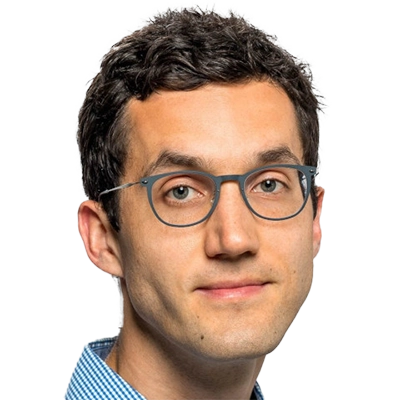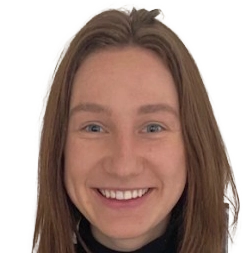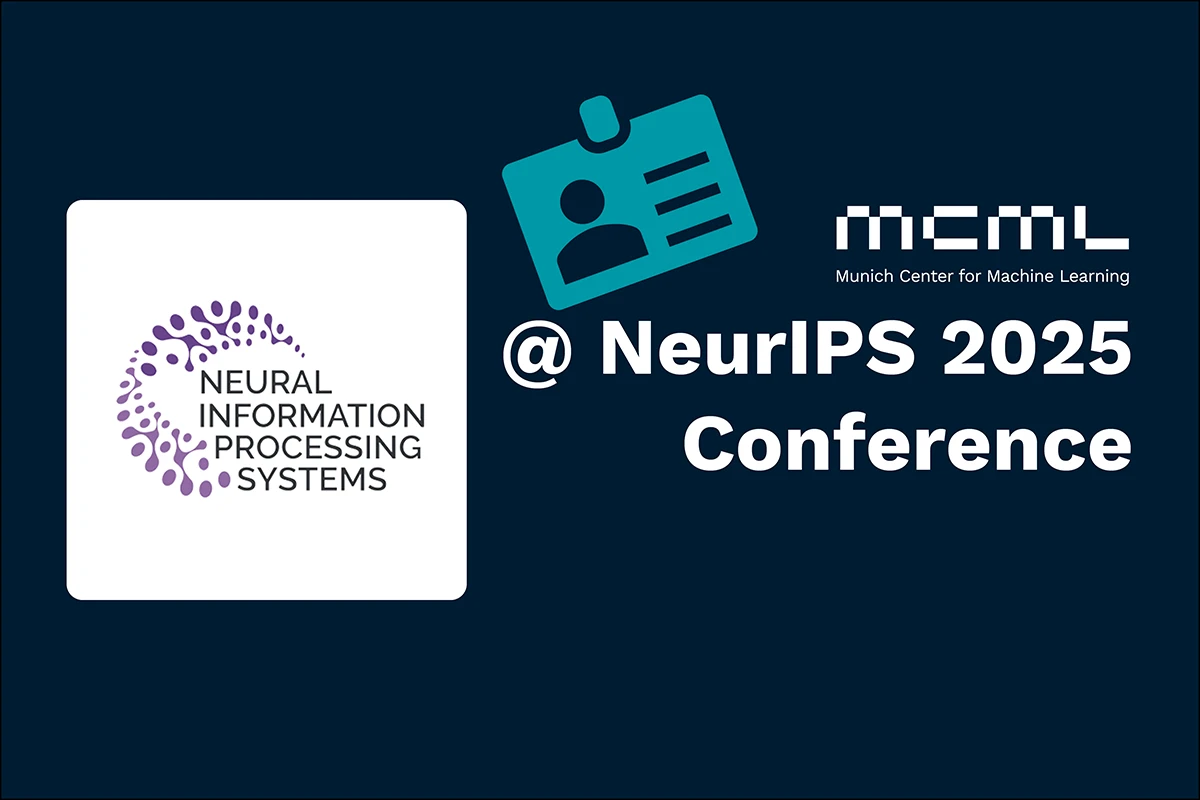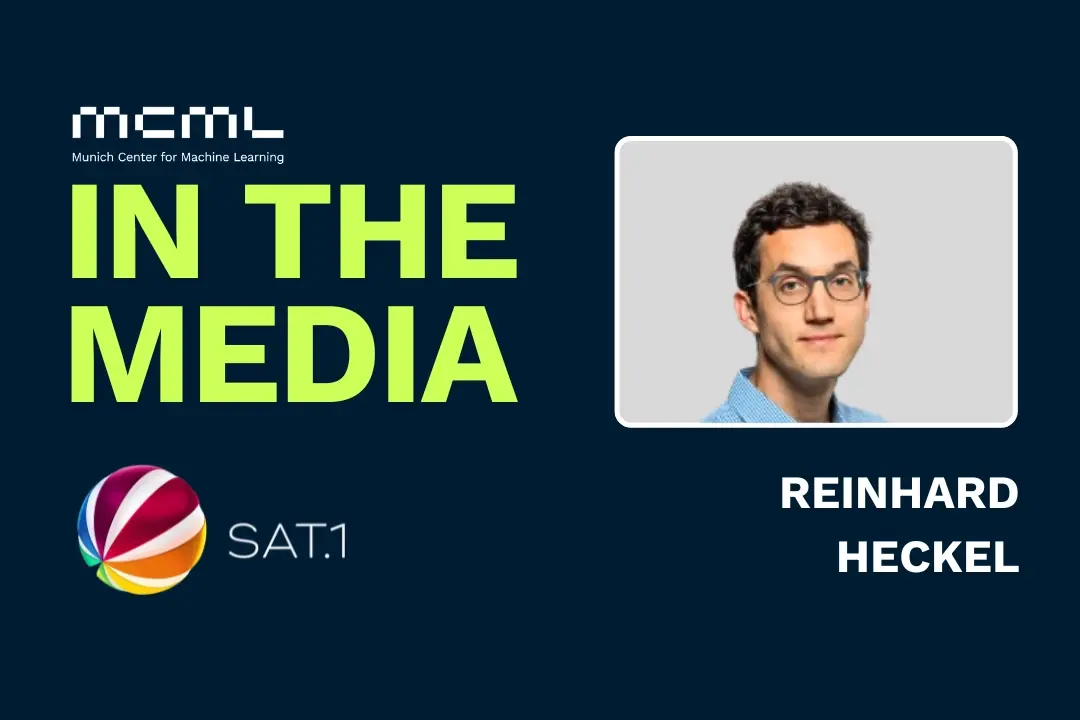Research Group Reinhard Heckel
Reinhard Heckel
is Professor for Machine Learning at TU Munich.
His research is centered on machine learning and information processing. He focuses on developing algorithms and theoretical foundations for deep learning, particularly in medical imaging application, and on establishing mathematical and empirical underpinnings for machine learning. Additionally, he works on DNA data storage and the utilization of DNA as a digital information technology.
Team members @MCML
PhD Students
Recent News @MCML
Publications @MCML
2025
[11]

Y. Mansour • R. Heckel
Measuring Fingerprints of Web-filtered Text Datasets and Fingerprint Propagation Through Training.
NeurIPS 2025 - 39th Conference on Neural Information Processing Systems. San Diego, CA, USA, Nov 30-Dec 07, 2025. Spotlight Presentation. To be published. Preprint available. URL
Measuring Fingerprints of Web-filtered Text Datasets and Fingerprint Propagation Through Training.
NeurIPS 2025 - 39th Conference on Neural Information Processing Systems. San Diego, CA, USA, Nov 30-Dec 07, 2025. Spotlight Presentation. To be published. Preprint available. URL
[10]
S. Bamberger • R. Heckel • F. Krahmer
Approximating Positive Homogeneous Functions with Scale Invariant Neural Networks.
Journal of Approximation Theory 311.106177. Nov. 2025. DOI
Approximating Positive Homogeneous Functions with Scale Invariant Neural Networks.
Journal of Approximation Theory 311.106177. Nov. 2025. DOI
[9]
T. Klug
Deep Learning for Image Reconstruction: Data Requirements and its Application to Motion-Correction in MRI.
Dissertation TU München. Aug. 2025. URL
Deep Learning for Image Reconstruction: Data Requirements and its Application to Motion-Correction in MRI.
Dissertation TU München. Aug. 2025. URL
[8]
J. Streit • F. Weindel • R. Heckel
Transformer-Based Decoding in Concatenated Coding Schemes Under Synchronization Errors.
ISIT 2025 - IEEE International Symposium on Information Theory. Ann Arbor, MI, USA, Jul 22-27, 2025. DOI
Transformer-Based Decoding in Concatenated Coding Schemes Under Synchronization Errors.
ISIT 2025 - IEEE International Symposium on Information Theory. Ann Arbor, MI, USA, Jul 22-27, 2025. DOI
[7]
F. Weindel • M. Girsch • R. Heckel
Trace Reconstruction with Language Models.
Preprint (Jul. 2025). arXiv
Trace Reconstruction with Language Models.
Preprint (Jul. 2025). arXiv
[6]
E. Guha • R. Marten • S. Keh • N. Raoof • G. Smyrnis • H. Bansal • M. Nezhurina • J. Mercat • T. Vu • Z. Sprague • A. Suvarna • B. Feuer • L. Chen • Z. Khan • E. Frankel • S. Grover • C. Choi • N. Muennighoff • S. Su • W. Zhao • J. Yang • S. Pimpalgaonkar • K. Sharma • C. C.-J. Ji • Y. Deng • S. Pratt • V. Ramanujan • J. Saad-Falcon • J. Li • A. Dave • A. Albalak • K. Arora • B. Wulfe • C. Hegde • G. Durrett • S. Oh • M. Bansal • S. Gabriel • A. Grover • K.-W. Chang • V. Shankar • A. Gokaslan • M. A. Merrill • T. Hashimoto • Y. Choi • J. Jitsev • R. Heckel • M. Sathiamoorthy • A. G. Dimakis • L. Schmidt
OpenThoughts: Data Recipes for Reasoning Models.
Preprint (Jun. 2025). arXiv URL
OpenThoughts: Data Recipes for Reasoning Models.
Preprint (Jun. 2025). arXiv URL
[5]
K. Wang • T. Klug • S. Ruschke • J. Kirschke • R. Heckel
Reliable Evaluation of MRI Motion Correction: Dataset and Insights.
Preprint (Jun. 2025). arXiv
Reliable Evaluation of MRI Motion Correction: Dataset and Insights.
Preprint (Jun. 2025). arXiv
[4]
2024
[3]

Y. Mansour • X. Zhong • S. Caglar • R. Heckel
TTT-MIM: Test-Time Training with Masked Image Modeling for Denoising Distribution Shifts.
ECCV 2024 - 18th European Conference on Computer Vision. Milano, Italy, Sep 29-Oct 04, 2024. DOI GitHub
TTT-MIM: Test-Time Training with Masked Image Modeling for Denoising Distribution Shifts.
ECCV 2024 - 18th European Conference on Computer Vision. Milano, Italy, Sep 29-Oct 04, 2024. DOI GitHub
[2]
Y. Mansour • R. Heckel
GAMA-IR: Global Additive Multidimensional Averaging for Fast Image Restoration.
Preprint (Apr. 2024). arXiv
GAMA-IR: Global Additive Multidimensional Averaging for Fast Image Restoration.
Preprint (Apr. 2024). arXiv
2023
[1]

Y. Mansour • R. Heckel
Zero-Shot Noise2Noise: Efficient Image Denoising without any Data.
CVPR 2023 - IEEE/CVF Conference on Computer Vision and Pattern Recognition. Vancouver, Canada, Jun 18-23, 2023. DOI
Zero-Shot Noise2Noise: Efficient Image Denoising without any Data.
CVPR 2023 - IEEE/CVF Conference on Computer Vision and Pattern Recognition. Vancouver, Canada, Jun 18-23, 2023. DOI
©all images: LMU | TUM








